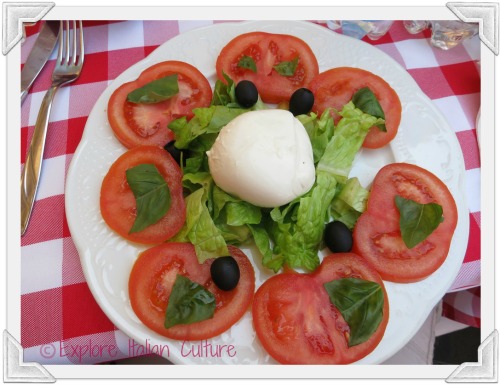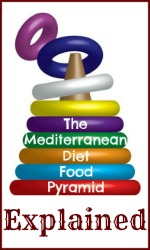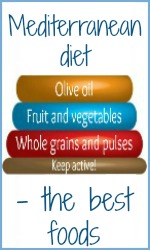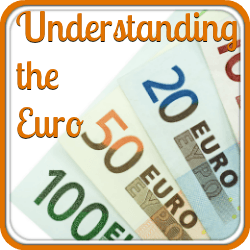What is the Mediterranean diet?
We explain.
Ever asked yourself "Exactly what is the Mediterranean diet?"
Having lived it for several years now we explain why it's not so much a diet, more a way of life - and how you can start putting its health benefits into practice straight away.
What is the Mediterranean diet? This should give you a clue!
The idea of a Mediterranean diet has been around since the 1950s, when an American scientist, Ancel Keys, was doing research in Southern Europe.
He noticed that the people living around the Mediterranean generally survived to a ripe old age and had a much lower rate of heart disease than other parts of the world - despite a physically tough, demanding lifestyle and limited money.
Keys concluded that this wasn't coincidence or good luck, but was directly related to their diet.
What is the Mediterranean diet take on fat?
The way fat is eaten is one of the critical keys to the success of the healthy eating of the peoples all around the Mediterranean.
Ancel Keys noticed that they ate more fish, grains and vegetables - and he also spotted that the fat content of the Mediterranean diet was very different. It was (and still is) much lower in 'bad', saturated fats and higher in 'good', poly- and mono- unsaturated fats.
Fish forms a major part of the diet - but rarely battered or fried - and although meat is eaten, and eaten regularly, animal fat is very rarely used in cooking. Olive oil is almost universally used.
Fresh fish at our local market - high in Omega 3 oils.
So are there more secrets to the Mediterranean diet?
It's not really a secret. The use of fine, fresh, brightly coloured vegetables, fruit without added preservatives, often from the family's own orchard, good quality wholegrains in home made bread and pasta which avoids the addition of salt and preservatives.
And above all the regular use of very high quality, unprocessed, extra virgin olive oil, usually from the family olive grove.
These remain the constants to this day.
A fresh Caprese salad using our home grown tomatoes, olives, leaves and herbs.

Why should we believe this healthy eating plan works?
Our travels across Southern Europe and our life now in Italy certainly give us eye-witness evidence which confirms the conclusions of all the research.
We still marvel at the sight of elderly gentlemen cycling up hills which our car needs a low gear to take. We watch in admiration as ladies in their 80s, - sometimes older - walk miles each day to market, up and down really demanding terrain.
Our 80+ year old neighbours still pick their olives by hand.
We know from experience what hard work the olive harvest is and yet neighbours in their 80s climb up and down ladders to reach every last olive - and think nothing of it.
And here's a recent example.
Our land includes a large field about one kilometre long, with a slope that makes San Fransisco look flat! The other day Adino, one of our neighbours who is 85 years old, trotted down the hill to help me find a boundary marker. On the return journey he left me, 30 years his junior, struggling up the hill after him!
We hope that our change of lifestyle and the adoption of a healthier Mediterranean type diet will help us to achieve such levels of health and fitness and extend our active life well into our old age too.
What is the Mediterranean diet able to do for you?
The same!
You don't need to live in Italy to experience its benefits. Through these pages we share with you the knowledge we have gained about the Mediterranean diet and health so that you, too, can live more happily, healthily - and into your own ripe old age.
Ready to learn more? Start with these pages.
Please note : we are not medically qualified and we do not offer medical advice. The information contained here is validated by the World Health Organisation and is given in good faith as general advice only.










